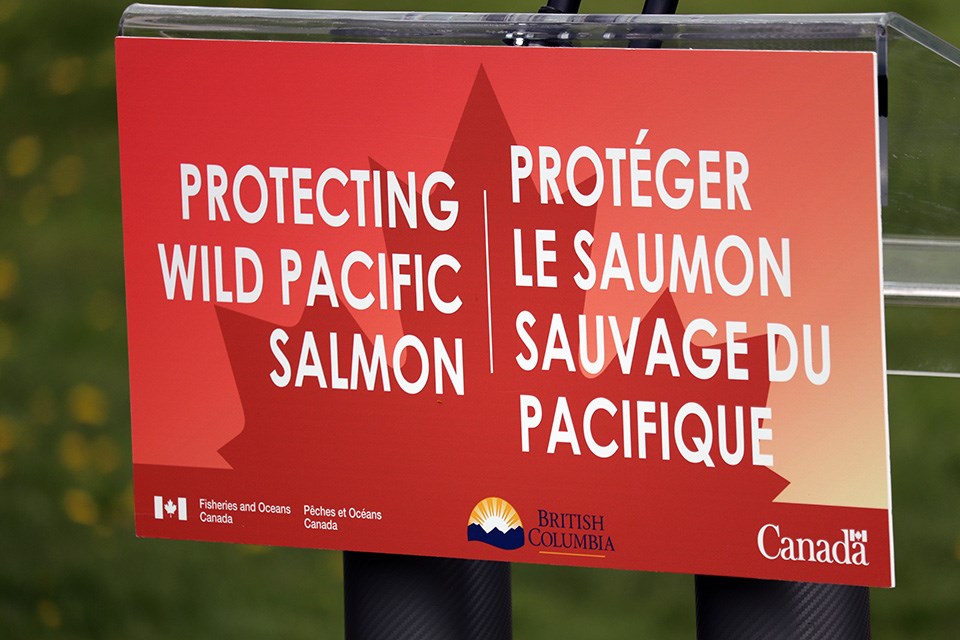A Port Coquitlam-based project set to maintain and preserve the health of a local watershed is getting some funds from the province and the country to make it possible.
The MakeWay Foundation is working in Colony Farm Regional Park to better understand the impacts of flood infrastructure on how fish access its waterways.
Now, it's one of 22 total projects receiving some of a joint $30.5-million investment to preserve wild Pacific salmon for the local environment, as well as those who depend on the fish for everyday life.
"The devastating floods in southern B.C. last November really highlighted the need for us to build back better to protect our communities from floods, caused by the increased frequency and intensity of such storms that we're seeing with climate change," explained Sarah Nathan, manager of provincial operations of Ducks Unlimited — a non-profit that focuses on wetland conservation in Canada.
Its organization is leading some of the projects getting the financial boost today (April 22) — also Earth Day — to restore salmon habitat in the Fraser River Estuary.
"[The floods] really taught us that we need new paths forward when it comes to living with water. The BCSRIF projects [BC Salmon Restoration and Innovation Fund] show that this can come with many other benefits including healthy wild salmon populations, improved food security, flood protection, and thriving communities."
The funding was unveiled in Colony Farm Regional Park by Joyce Murray, federal minister for Fisheries, Oceans and the Canadian Coast Guard, as well as Coquitlam-Burke Mountain MLA Fin Donnelly and Coquitlam-Port Coquitlam MP Ron McKinnon.
It's going to be distributed by BCSRIF via the provincial government.
Broken down, 70 per cent of the funds are flowing in from Ottawa and the remaining 30 per cent from Victoria.
MakeWay Foundation's Colony Farm focus is being collaborated with the kʷikʷəƛ̓əm (Kwikwetlem) First Nation, UBC and the Metro Vancouver regional district.
"I am so grateful for the work our project partners do. I appreciate their enthusiasm and dedication to the protection and restoration of wild salmon habitats," said Donnelly, who's also the parliamentary secretary for B.C.'s ministry of fisheries and aquaculture.
"BCSRIF projects are diverse in location, scale and approach. They demonstrate the importance of salmon and fisheries to B.C. communities up and down the coast, and in the interior. Researchers and experts are harnessing the use of advanced technology in science, as well as the wealth of Indigenous knowledge in their projects.
"And their methods to innovate to achieve them are recognized and appreciated."
Donnelly adds 18 of the 22 total projects are led by Indigenous nations, and the $30.5 million represents a doubling of BCSRIF's current available funding.
As well, the First Nation Fisheries Legacy Fund Society is set to integrate community mapping with geospatial technologies to enhance the ability to monitor and manage wild salmon habitat.
The investment is part of the $107 million the Canadian government promised in its ocean protection plan in Budget 2022, which Murray believes will help B.C. coastal and marine habitats.
"Since 2019, 80 projects have have helped wild salmon conservation and modernize B.C.'S fish and seafood sector through innovation, infrastructure, and science partnerships," the MP for Vancouver-Quadra says.
Murray hopes the projects will ultimately preserve other species in addition to wild Pacific salmon, such as herring and orca.





